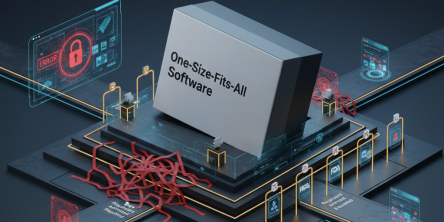Key Differences Between Azure Synapse and Databricks

It is no secret that data is immensely valuable, especially given the modern digital landscape. Every single interaction or transaction on the face of Earth generates data. Unsurprisingly, businesses today have collected and continue to collect an immense amount of data. While all of that is terrific, the truth is that being able to analyze this data, and effectively at that, is supremely important for companies to access insights -- the kind that can guide strategic business decisions, boost the quality of customer experiences, and so much more. So, to fully exploit the potential of all the data, businesses need powerful solutions that can help them process, analyze, and glean insights from this continuously expanding information. This is where cloud-based analytics platforms come into play and in this market, Azure Synapse and Databricks are two leading platforms.
It goes without saying that both provide a robust set of features that are designed to help organizations manage and analyze their data. Yet, with such extensive functionality, selecting the right platform for your company can be daunting. But worry not, for that is exactly the conundrum with which this blog aims to help. So, if you are looking to decide between hiring custom Azure Analytics services or that for Databricks, read on.
What is Azure Synapse?
Microsoft provides a cloud-based enterprise analytics service called Azure Synapse. It primarily serves as a hub for streamlined processes for accessing insights from your data, no matter its source or configuration.
What is Databricks?
Databricks is a cloud-based platform underpinned by the Apache Spark. Databricks use this tool's capabilities to deliver a robust environment for data engineering, machine learning, etc.
Azure Synapse vs Databricks: Comparision
- Data security: Azure Key Vault is used for key management. Azure Synapse uses a multi-layered security strategy that includes data encryption both at rest and in transit, access control, etc. Databricks also has similar security features, including data encryption and access control. However, with the latter, you must manually configure the security settings. That said, Databricks enhances security measures by integrating with external key management services such as Azure Key Vault.
- Reporting: Azure Synapse integrates without a fuss with Microsoft Power BI, facilitating the creation of smart dashboards and reports for simple visualization and investigation of data insights. Conversely, Databricks does not have built-in reporting tools, and while it supports data control and examination, it also requires integration with external BI solutions to create reports.
- Data processing: Using the open-source version of Apache Spark, Azure Synapse supports various data processing languages such as SQL, Java, Python, etc. To help build intricate ETL pipelines, Azure Synapse integrates with Azure Data Factory. Databricks, on the other hand, is based on an optimized version of Apache Spark, which speeds up processing times. It also supports similar languages for data science tasks, strongly emphasizing Python. Did I mention Databricks also includes its own data pipeline functionality?
- Architecture: Microsoft handles infrastructure management in Azure Synapse, a unified analytics service with pre-configured components for data warehousing, big data processing, etc. Databricks offers an adaptable architecture with on-request cluster provisioning, permitting scalable compute assets given workload requirements; however, it needs more client contribution in dealing with the infrastructure than Azure Synapse.
Final Words
To summarize, both Azure Synapse and Databricks provide comprehensive cloud-based analytics solutions that may significantly enhance a company's data management and analysis capabilities. Azure Synapse is distinguished by its seamless integration into the Microsoft ecosystem and ease of use for business intelligence, whereas Databricks excels in performance and flexibility, notably for data engineering and machine learning workloads.
The decision between them is ultimately determined by your individual needs and the existing technical ecology. This blog strives to clarify these possibilities so that you may make an informed decision that is relevant to your organization's goals. A quick look at this discussion offers up a clear winner, i.e., Azure Synapse. So, make sure to compare your requirements with what this Microsoft offering has to offer before you start working with a custom Azure Analytics services provider.
Similar Articles
Organizations are always looking for newer technologies to aid their operations. So, this hunt revolves around solutions that offer not only agility and scalability but are also cost-effective.
Not long ago, the idea of multiple AI agents working together, each with a specific role, collaborating to solve problems, felt like science fiction.
In today’s data-driven world, choosing the right business intelligence (BI) platform can make or break your organization's analytics success.
We all know that companies today are no longer limited to a single physical location. Work processes are also no longer strictly isolated.
It is neither secret nor news that the mind-boggling pace of digital transformation around us has totally altered consumer expectations.
In the world of finance, speed and accuracy are everything. Decisions made a day late can cost millions, and delayed visibility into financial performance can leave even the best organizations blind to risks.
Discover the best tools to enhance employee recognition, boost morale, and create a more motivated, engaged workplace culture.
At first glance, off-the-shelf software appears to be a dream come true. They are quick to set up, cheaper upfront, and marketed as “universal.”
A modern business must continually adapt. This bit everyone seems to know.









